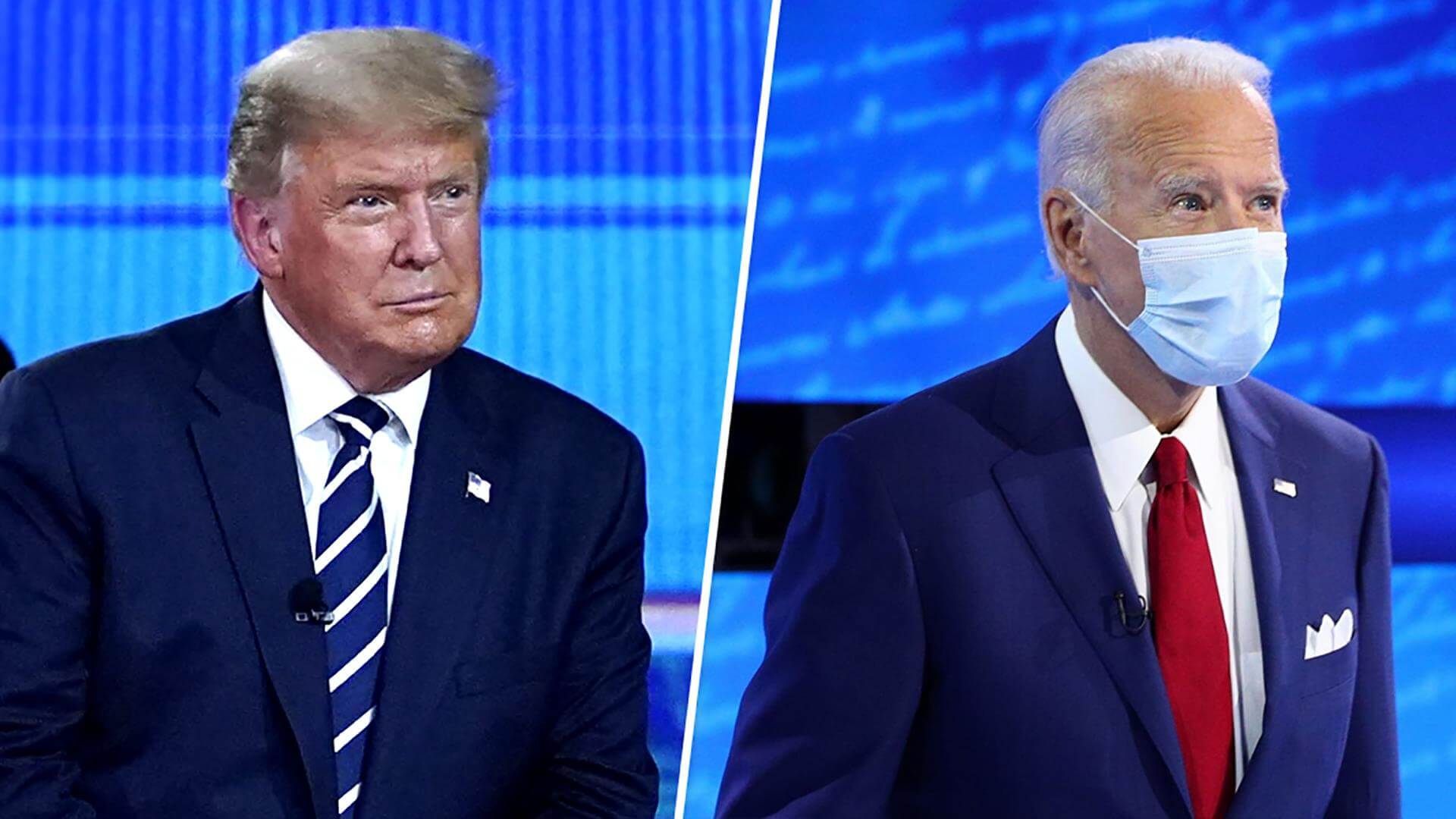US President Donald Trump and Joe Biden took to separate stages thousands of miles apart on Thursday night to answer important questions about the coronavirus crisis, the US economy, race and relations, and the US Supreme Court among other issues. The two town halls replaced what was originally supposed to be a face-to-face second presidential debate between the two contenders, which was canceled by the Commission on Presidential Debates after Trump contracted COVID-19 and refused to participate in a virtual debate with Biden.
Trump spoke with NBC’s Savannah Guthrie from an outdoor setting at a Miami art museum, while Joe Biden was at the National Constitution Center in Philadelphia with ABC anchor George Stephanopoulos. The events offered a different format for the two rivals to present themselves to the voters—given their chaotic and combative debate last month—and the stark contrast between the two men’s tones and approaches was immediately on display.
Trump was grilled on his administration’s response to the coronavirus pandemic, which has claimed more than 210,000 lives, his embrace of conspiracy theories, and white supremacists—all of which he struggled to defend. Employing his usual loud and brash style, the president failed to confirm whether he had taken a COVID-19 test before his first debate (which was a requirement by the Commission), expressed skepticism about wearing masks and made multiple false claims about their effectiveness, and refused to disavow QAnon, a pro-Trump internet community that has been described by US law enforcement as a potential domestic terrorism threat.
When pressed on his views on White supremacy, he put forward a more defensive front, blaming the media for only focusing on him when the “people on the left are burning down our cities that are run by Democrats”. Given Ms. Guthrie’s persistent questioning on why he seemed “hesitant” to denounce White supremacists, Trump responded harshly, saying: “You’ve done this to me and everybody. ... Are you listening? I denounce White supremacy. What’s your next question?”
Joe Biden, on the other hand, took a softer approach, and focused his message on public health concerns and promised to restore political norms and order. He took aim that the Trump administration’s handling of the pandemic, and spoke at length (with multiple detours along the way) about his plans to confront the major challenges facing the US, including school and business reopenings.
When asked about the Supreme Court and his stance on packing the court—a measure the Democrats have suggested as a response to the expedited confirmation process of a conservative judge less than a month away from the election—Biden sought to dodge the question and instead focused on the threat that the Affordable Care Act (ACA) would face due to a conservative majority court. However, he appeared to tell Mr. Stephanopoulos that he would clarify his position on the expansion of the Supreme Court before Election Day, depending on how Senate Republicans handled the situation.
The two opponents are expected to participate in a final debate next week on October 22, in Nashville.

